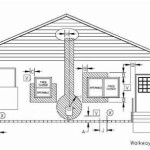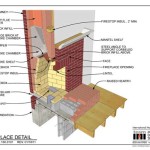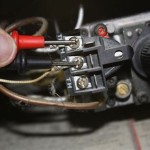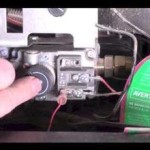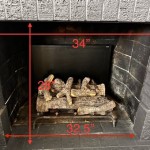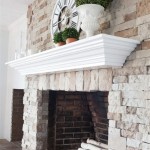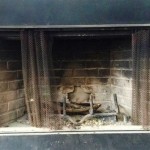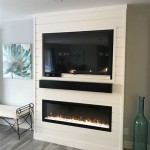Stand Alone Gas Fireplace: A Comprehensive Overview
Stand alone gas fireplaces, also known as freestanding gas fireplaces, offer a convenient and aesthetically pleasing heating solution for homes. These units provide the ambiance of a traditional fireplace without the mess and inherent challenges associated with wood-burning models. They are self-contained, requiring no existing chimney or hearth, making them versatile additions to a variety of spaces.
The primary components of a stand alone gas fireplace include the firebox, burner, gas valve, and venting system. The firebox is the enclosure that houses the flames and provides the visual focal point. Burners are designed to distribute the gas evenly, creating a realistic flame pattern. The gas valve controls the flow of gas to the burner, allowing for adjustments in flame height and heat output. The venting system safely exhausts combustion byproducts outside the home.
Advantages of Stand Alone Gas Fireplaces
One of the most significant advantages of a stand alone gas fireplace is its ease of installation. Unlike traditional fireplaces that require extensive masonry work, stand alone units can often be installed with minimal modifications to the existing structure. This makes them an attractive option for homeowners seeking to add a fireplace to rooms without existing chimneys. Installation typically involves connecting the unit to a gas line and running the venting system to an exterior wall or roof. Certain models offer vent-free options, further simplifying the installation process, though these require careful consideration of ventilation requirements within the space.
Another advantage is the operational convenience. Gas fireplaces offer instant heat at the flick of a switch or the press of a button on a remote control. This eliminates the need to gather, stack, and light wood, as well as the subsequent cleaning of ashes. The thermostat control allows for precise temperature regulation, ensuring consistent and comfortable heating. Many models also feature programmable timers, allowing homeowners to schedule the fireplace to turn on and off at specific times, further enhancing energy efficiency.
Stand alone gas fireplaces are also generally more energy-efficient than traditional wood-burning fireplaces. They convert a higher percentage of fuel into usable heat, minimizing heat loss through the chimney. This efficiency, combined with the precise temperature control, can result in lower heating bills, particularly when used to supplement the primary heating system. Furthermore, they produce fewer emissions than wood-burning fireplaces, contributing to improved air quality both inside and outside the home.
Types of Venting Systems
Venting is a critical aspect of stand alone gas fireplace operation. There are two primary types of venting systems: direct vent and vent-free. Direct vent systems draw combustion air from outside the home and exhaust combustion byproducts directly outside through a sealed vent pipe. This type of system is considered the safest option, as it prevents the introduction of combustion byproducts into the living space. Direct vent systems can be vented horizontally through an exterior wall or vertically through the roof, offering flexibility in installation.
Vent-free fireplaces, as the name suggests, do not require a vent. They burn gas very efficiently, producing minimal amounts of carbon monoxide and other pollutants. However, because they release combustion byproducts directly into the room, they require adequate ventilation to ensure safe operation. Most vent-free fireplaces are equipped with oxygen depletion sensors (ODS) that automatically shut off the gas supply if the oxygen level in the room drops to an unsafe level. Vent-free models are typically only approved for supplemental heating and should not be used in confined spaces or in areas with limited ventilation.
The choice between direct vent and vent-free depends on several factors, including local building codes, the size and ventilation of the room, and personal preferences. It is crucial to consult with a qualified professional to determine the most appropriate venting system for a specific application.
Aesthetic Considerations and Styles
Stand alone gas fireplaces are available in a wide variety of styles and finishes to complement diverse interior design preferences. From traditional designs that mimic the look of wood-burning fireplaces to modern units with sleek lines and minimalist aesthetics, there is a stand alone gas fireplace to suit virtually any taste.
Many models feature realistic-looking artificial logs, ember beds, and decorative rock or glass media. These elements enhance the visual appeal of the fireplace, creating a warm and inviting atmosphere. Some units offer customizable flame patterns and lighting options, allowing homeowners to further personalize the look and feel of the fireplace. The exterior of the fireplace can also be customized with various finishes, such as cast iron, porcelain, or stone, to match the surrounding décor.
The size and shape of the fireplace can also be factors in the aesthetic appeal. Compact models are ideal for smaller rooms, while larger units can serve as a dramatic focal point in larger spaces. Corner units are designed to fit snugly into corners, maximizing space utilization. Wall-mounted units offer a contemporary look and feel, while freestanding units provide flexibility in placement.
In addition to the visual elements, the sound of the fireplace can also contribute to the ambiance. Some models feature adjustable flame settings that produce a quiet, crackling sound, adding to the realism and creating a relaxing and comforting atmosphere. The range of aesthetic options allows homeowners to select a stand alone gas fireplace that seamlessly integrates with their existing décor while providing efficient and convenient heating.

Ortal Stand Alone Collection Luxury Fires Robey S

Freestanding Gas Fireplaces Fergus Fireplace
Dru Freestanding Gas Fires And Stoves

Contemporary Stand Alone Gas Fireplaces Solid Fuel Stove Free Standing Hampshire Stan Freestanding Fireplace Home

Free Standing Gas Fireplace Stoves For 30 On Now

Gas Fireplace Stand Alone 75x65 Curve Ortal Usa Contemporary Closed Hearth Floor Mounted

Freestanding Gas Fireplaces Fergus Fireplace

Modern Free Standing Fireplaces Stand Alone

Ortal Stand Alone Three Sided 110 Fireplace Hearth Appliances

50 Free Standing Ventless Gas Fireplace Visualhunt
Related Posts

